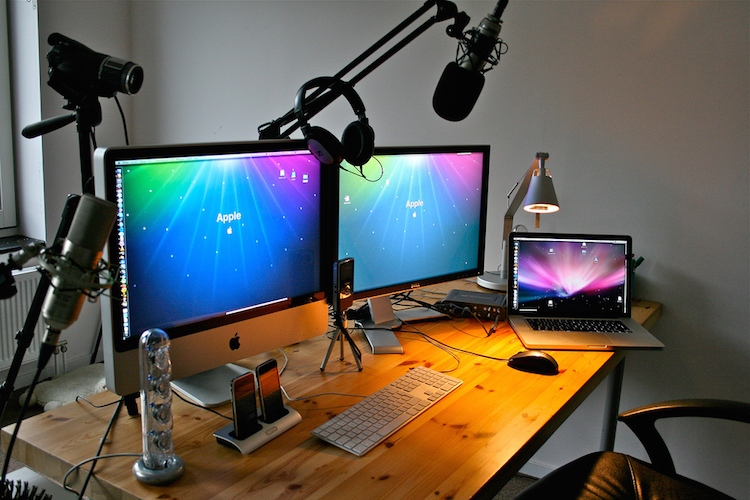In my 15 predictions for 2015, I mentioned podcasting and how many new shows would launch in hopes to become the next Serial. I also stated that they would mostly fail.
So how can 2015 be the year of the podcast if most new podcasts will fail? Because in 2015, we will see podcasting become the next major form of digital entertainment and, in turn, the next major revenue stream for digital media.
Over the next few weeks, I’ll cover different aspects of podcasting, but today, I share my top five reasons I think podcasting is the next big thing along with some personal notes from the podcast I host with Thom Rainer:
- The cost for entry is relatively low. You don’t need big fancy equipment to produce a good quality show. You could record an entire episode on the iPhone you already own, edit it using free software, and host it online for just a few bucks a month. I can easily show you how to do a podcast costing you less than $100 per year if you really wanted to do it on the cheap. And the end user would likely not be able to tell the difference in sound quality between your show and one that’s heavily produced. Our only costs for Rainer on Leadership are the mics ($350 each—they are top of the line), the intro music (there are several sites with cheap, royalty-free music out there), and the file hosting (Amazon S3). We had an old mixer already at LifeWay that wasn’t being used, and I edit the show using Audacity (free). That’s all you really need.
- The ocean is blue. Podcasts are lagging behind the blog & website glut in specific genres. Say you’re a fan of a certain non-Power 5 college sports team. There may be a couple dozen websites devoted to that team. But there may only be one or two (or possibly none) podcasts about that team. You can be the go-to podcast for a certain topic faster and easier than you can be the go-to website or blog for the exact same topic. When we launched our leadership podcast, we were one of only a few Christian leadership podcasts—99% were sermon-based. Now, 20 months later, the genre has grown but there are still relatively few out there, and Rainer on Leadership is cemented in the top three.
- Listening is easier than ever. A hurdle podcasts had to overcome a decade ago was file mobility. You would download the episode in iTunes then have to transfer that file to your mp3 player of choice. Now, with smartphones, you can download episodes or stream them straight to your phone. Also, bluetooth, USB, and auxiliary inputs are standard in cars now. One connector cable allows you to play the podcast directly from your phone while in the car. This is critical because commutes are one of the top times people consume podcasts. With Rainer on Leadership, we’ve seen bumps in listenership every time a new iPhone was released. As the consumption device becomes more accessible, the listenership increases proportionally.
- Consumer behavior data is becoming more known. An early problem for many podcasts was that no one knew how long they should be or what format they should be. Consumer preferences and behavior patterns are now available for podcast listeners. So good producers take should that data into account. While I enjoyed Serial, I think one of the major flaws was the episode length. 40-50 minutes is about twice as long as an episode should be. We keep Rainer on Leadership to 20-25 minutes. This is an average commute time. It’s also about how long it takes to do a household chore or how long it takes to walk your dog. That timeframe really fits into life moments and makes the podcast easier to consume.
- Advertisers are starting to spend money on podcasts. See Mailkimp. Follow the money. If it’s important to businesses, they will spend money on it. And if you are one of the first into the space and build a following, they will come knocking on your door when it’s time to spend that money. With Rainer on Leadership, we have used internal “sponsors” on the show basically to highlight different Biblical solutions for life that LifeWay offers. These internal ads aren’t paid, but we’ve started with “sponsors” from day one so that if we ever venture out, it’s not whiplash for the audience. So maybe that’s a model you can follow until the “real” advertising starts. Use a friend’s company or your wife’s Etsy business. Just set the precedent for advertising from the start.
Do you have a podcast? What would you add?


There is certainly a lot to find out about this subject.
I like all of the points you have made.
Very interesting post Jonathon! I’ve been listening to podcasts for a few years now and this post has inspired me to start doing a weekly podcast! I totally agree that 2015 is going to be the year of the podcast.